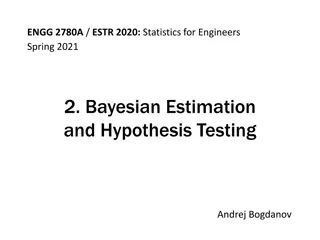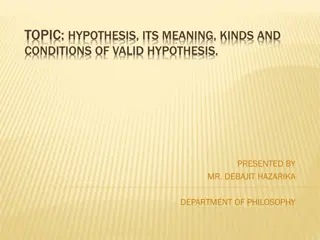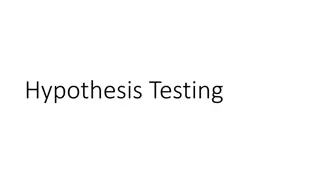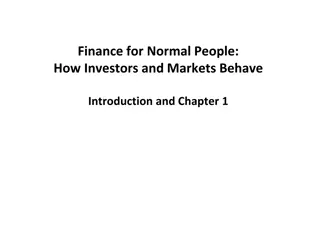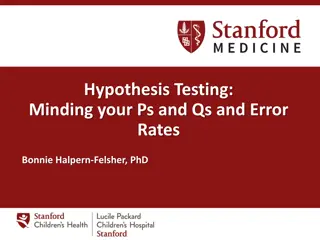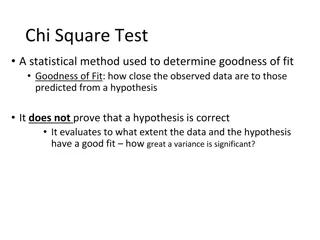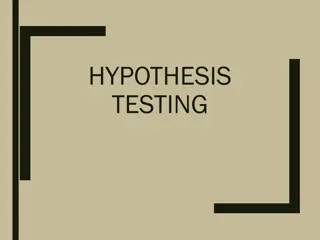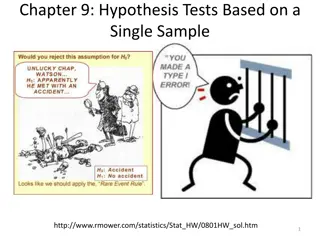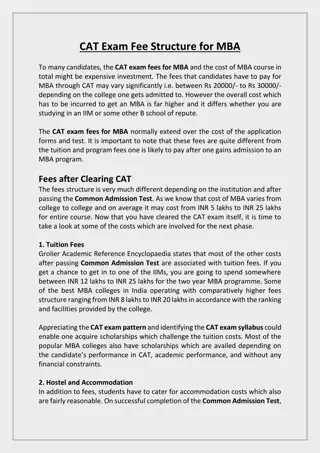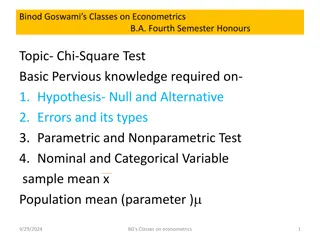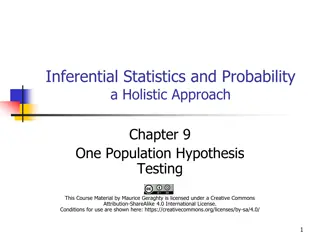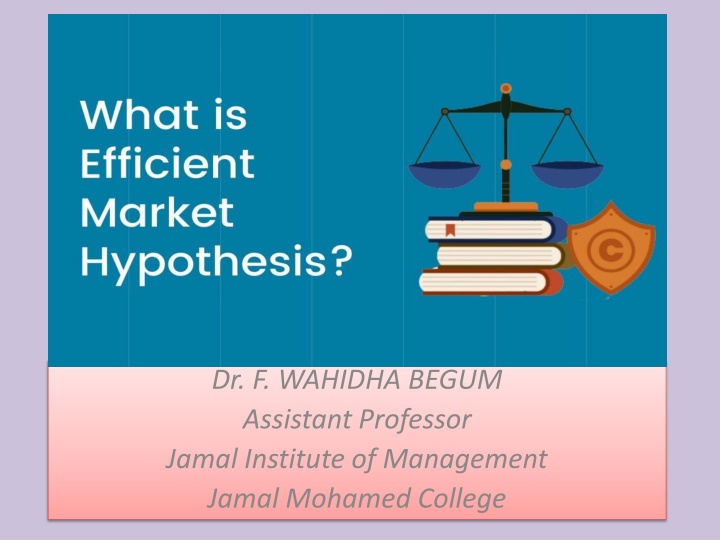
Efficient Market Hypothesis and Its Implications
Explore the concept of Efficient Market Hypothesis (EMH) and its impact on investment decisions. EMH states that stock prices reflect all available information, making it impossible to outperform the market based on public information. Discover the advantages and disadvantages of EMH, forms of efficient markets, and how it influences investment strategies.
Download Presentation

Please find below an Image/Link to download the presentation.
The content on the website is provided AS IS for your information and personal use only. It may not be sold, licensed, or shared on other websites without obtaining consent from the author. If you encounter any issues during the download, it is possible that the publisher has removed the file from their server.
You are allowed to download the files provided on this website for personal or commercial use, subject to the condition that they are used lawfully. All files are the property of their respective owners.
The content on the website is provided AS IS for your information and personal use only. It may not be sold, licensed, or shared on other websites without obtaining consent from the author.
E N D
Presentation Transcript
Dr. F. WAHIDHA BEGUM Assistant Professor Jamal Institute of Management Jamal Mohamed College
Efficient Market Efficient Market mean a market in which share price follow an independent path. Market Efficiency refers to the degree to which market prices reflect all available, relevant information. If markets are efficient, then all information is already incorporated into prices, and so there is no way to beat market because there are no undervalued or overvalued securities available.
What is Efficient Market Hypothesis? The efficient market hypothesis originated in the 1960s and was published by economist Eugene Fama. The efficient market hypothesis suggests that the current stock price fully reflects all the available information regarding a firm and hence it is impossible to beat the market using the same information. you cannot beat the market by using the information that is already available to the public as the market has already incorporated and reflected all the relevant information which may impact the stock.
Key points Stocks always trade at a fair price and reflects all the available information at a particular time. It is impossible to purchase an undervalued stock and sell at an inflated price. The only way an investor can possibly obtain a higher return than the market is by investing in riskier stocks.
Advantages Simplifying Investment Decisions: allows investors to trust that market prices are fair without needing to devote significant time and resources to researching individual stocks or assets. EMH Promotes Market Confidence: integrate new information, giving investors greater trust
Stimulates Diversification Reduces Impact of Market Bubble Measuring Investment Performances Discourages Insider Trading
Disadvantages EMH Ignores Market Anomalies and Inefficiencies Ignores behavioural Biases: EMH fails to take into account the influence of psychological biases Unable to Explain Financial Crises and Bubbles Underestimates the Value of Active Management Discourages Fundamental Analysis Imperfect Information Dissemination
Supply and Demand framework Demand for an asset: Represents how much investors are willing to buy at a given price. Supply of an asset: Represents how much of the asset is available for sale at a given price. In an efficient market: Price is determined by the balance between the supply and demand for an asset. Any new information that impacts demand or supply is quickly incorporated into the asset's price.
Information and Price Adjustments (EMH) in the Supply-Demand Framework New Information Affects Demand When new positive information becomes available (e.g., an earnings beat or a breakthrough in technology), demand for the asset increases. As demand increases, the price of the asset rises rapidly. Conversely, if negative information (e.g., a profit warning) is released, demand falls, and prices decrease. b. New Information Affects Supply An increase in price may induce some current holders to sell their assets, increasing the supply temporarily. As prices fall in reaction to negative news, holders may be less inclined to sell, reducing supply at lower prices. Result in an Efficient Market: Prices quickly adjust to reflect the new balance of supply and demand. The efficiency of this adjustment process depends on how rapidly market participants incorporate and act on the new information.
Market Efficiency and Price Discovery Price discovery is the process by which markets determine the price of an asset. In an efficient market: Prices are always at an equilibrium point where supply equals demand. New information causes shifts in demand and/or supply, but prices adjust so quickly that mispricing is minimal.
The EMH aligns with the classical supply and demand framework by suggesting that prices reflect all available information at any given time. In an efficient market, the forces of supply and demand immediately adjust to any new information, ensuring that prices are always at equilibrium. While behavioral biases may occasionally create short- term inefficiencies, EMH posits that these are corrected by rational market forces over time. Thus, from a supply and demand perspective, EMH maintains that prices in financial markets are always optimal, based on the available information, preventing consistent opportunities for outperformance.





